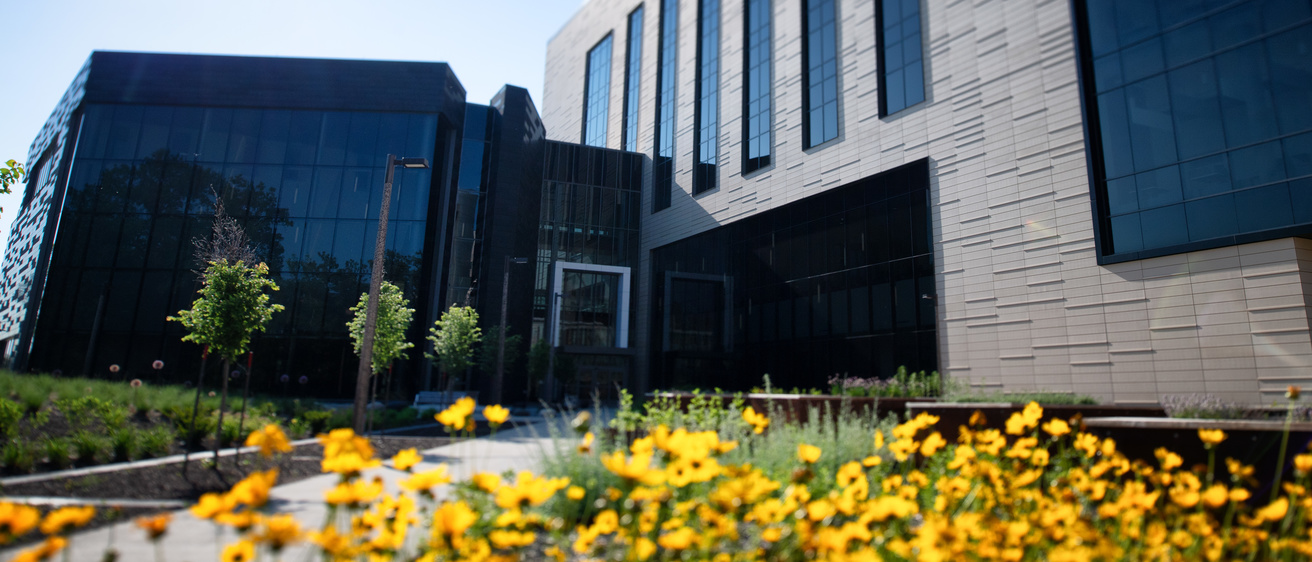Two UI College of Pharmacy faculty members recently received the Dr. Ralph and Marian Falk Medical Research Trust Catalyst Award — the first of its kind awarded to the University of Iowa. The award will benefit their novel research endeavor to develop a new technology that could rapidly detect bloodborne markers to identify whether a critically ill patient with sepsis is at high risk for organ failure and death.
The collaboration between Ethan Anderson and Reza Nejadnik, both associate professors of Pharmaceutical Sciences and Experimental Therapeutics, started a year ago after Nejadnik presented about his lab’s immunosensor technology. Anderson, whose lab previously made discoveries about certain bloodborne biochemical markers that were spiking in blood during sepsis in animal models, thought his research could benefit from Nejadnik’s technology.

“My group has been working on sepsis research for several years, and we have very nice preliminary data in rodent models and human patients with sepsis and COVID, showing that when the blood levels of these biochemical markers are high, that indicates the patient (or mouse) is at high risk for organ failure,” Anderson explained.
He shared that he partnered with Nejadnik’s group with the goal of designing a rapid test using an immunosensor.
“Current methods to detect these markers typically take many hours, and in order for this test to be useful in the clinic, it has to be fast,” Anderson said. “Ideally, 10 to 20 minutes.”
A rapid test is important because sepsis progresses rapidly and needs to be monitored closely in order for the patient to avoid organ failure.
Nejadnik shared that the immunosensor prototype his group developed has shown to detect biomarkers of interest within 40 minutes.
Next steps for Anderson and Nejadnik’s work include testing blood samples with the new device, first from rat models with sepsis, then from plasma samples of real patients with sepsis.
“We’ll be moving toward a device that potentially could be usable in critical care units and emergency departments sometime in the not-too-distant future,” Anderson said.
With support from the Falk Medical Research Trust Catalyst Award — which provides seed funding for up to two years to support translational research that can be transferred to clinical practice in the near term — Anderson and Nejadnik hope to create a preliminary device that indeed tests the severity of sepsis or death risk in rat models in the course of 48 hours.
“If we can create a prototype device that can measure this biomarker quickly and that shows some association with the likelihood of the rats dying from sepsis, then the next step is the Transformative Award,” Anderson said.
That award, also offered by the Falk Medical Research Trust, provides a subsequent $1 million, which would set the team up well for future research and development to create a rapid test used in critical care units and emergency departments.
Moving forward, both Anderson and Nejadnik plan to get students involved with the project. It’ll be a one-of-a-kind opportunity for them to get clinically relevant, hands-on experience in the lab.
“It’s great work for young, up-and-coming biologists and people interested in medicine, nursing, or pharmacy as future careers,” Anderson said.
Added Nejadnik, “Training, certainly, is a big part of this.”
He also highlighted how this collaboration is a prime example of interdisciplinary work between people from different backgrounds and areas of expertise.
“Starting something like this isn’t easy,” Nejadnik said. “This happened organically from a few discussions and some experimental work, but what I’m hoping is that when we move forward with this project, our collaborations and things we learn from each other help us come up with a more diverse set of ideas.”
He continued, “That’s something I look forward to in the future — initiation of other, hopefully promising, projects for the good of patients.”
